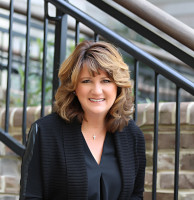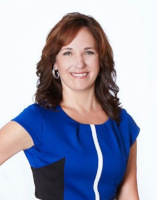Catherine Shanahan, Karen Chellew, Arlan Kardon Esquire, Sean McCusker

Catherine Shanahan, CDFA, Mediator
Catherine Shanahan earned a BS in Accounting from Clarion University. A Certified Divorce Financial Analyst (CDFA), Professional Daily Money Manager (PDMM), and trained mediator. She is a member of the Bucks County Collaborative Law Group, American Association of Daily Money Managers (AADMM) the Institute for Divorce Financial Analysts, National Association of Women Business Owners (NAWBO) and the Association of Divorce Financial Planners (ADFP). She is a Delta Zeta alumna. Catherine splits her time between Bucks County, Pennsylvania, and Hilton Head, South Carolina, and enjoys golfing, spending time with family and friends, and empowering women to be their best.

Karen Chellew, Legal Liaison, QDRO Administrator
Karen Chellew is a certified QDRO Administrator. She has spent 30 years in the legal industry as a paralegal and business manager for a law firm. She also serves as auditor for East Rockhill Township, PA. RecentIy, Karen established a women’s organization, Sisters U, which focuses on helping women to become and their best selves and to live fulfilling lives. Karen is on the advisory board of Emerge of PA , participates on the committee for Women of Influence for Pearl Buck International and also serves on the board of Perkasie Towne Improvement Association.

Arlan, Kardon, Esquire
Arlan Kardon, Esquire received her J.D. from Temple University School of Law and her B.A. in history from Temple University, where she was a Presidential Scholar. She is a member of the Family Law Section of the Philadelphia, Montgomery and Pennsylvania Bar Associations, a member of the State Bar Association of New York and a Charter Member of the Lawyers and Psychologists Group of Pennsylvania. She also serves on the Board of Directors of Artreach, a nonprofit organization that joins the performing and visual arts with special needs audiences.
Ms. Kardon is admitted to the bar of the Commonwealth of Pennsylvania; the State of New York; and the U.S. Court of Appeals, 3rd and 11th Circuits. Her Martindale-Hubble®* rating of AV indicates very high to preeminent legal ability and very high ethical standards.
An avid photographer and traveler, Ms. Kardon is happily married and intimately involved in the lives of her twin daughters.

Sean McCusker
Sean McCusker is an associate in the Family Law department of Dolchin, Slotkin and Todd. Sean’s practice concentrates on all matters involving child custody, support and equitable distribution of marital property. Sean’s interest in family law was sparked in his first year of law school when he began a summer internship with Philadelphia Legal Assistance’s Child Custody and Support Clinic (CASAC). Sean then undertook an internship at Washington D.C.’s Children’s Law Center, where he worked on behalf of children involved in Adoption, Abuse, Foster and Special Education matters.
After graduating from Law School in 2010 Sean worked for the prestigious Family Law Department of a large law firm until joining Dolchin, Slotkin and Todd in 2014. Sean’s practice concentrates on Philadelphia, Montgomery, Chester, Delaware, Berks and Bucks counties. Sean has authored numerous articles on a variety of family law topics including the emerging impact of social media, such as Facebook, on custody litigation as well as landmark developments in Pennsylvania law, such as the abolishment of Parent Coordinators. Sean has also been invited to speak on panels for the Pennsylvania Bar Association and Pennsylvania Bar Institute and has provided guest lectures to the undergraduate Psychology Department of Drexel University.
Sean’s education includes a B.A. in English from Pennsylvania State University where he graduated with distinction in 2007 and a J.D. from the Villanova University School of Law where he graduated in 2010. Sean is admitted to practice law in Pennsylvania and New Jersey. Sean currently resides in Philadelphia in the Fishtown section with his Wife and his two year old son.